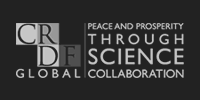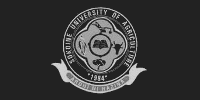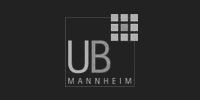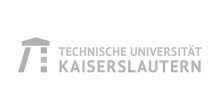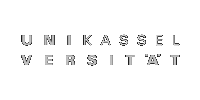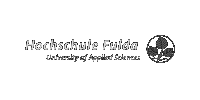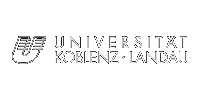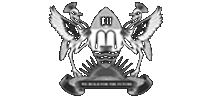SemperTool Digital Library Suite DLS
All in one, turnkey solution for the modern library.
SemperTool DLS at a glance
The SemperTool Digital Library Suite (DLS) is a complete package of simple yet powerful tools built in order to give complete control to librarians for managing their libraries as well as deliver effective services to end users. Built by librarians, with other librarians and their end-users in mind, the philosophy behind SemperTool DLS is to achieve greater efficiency by reducing complexity and providing a streamlined solution.
Managing and operating effective digital libraries is a complex process, requiring the effective synchronization of a number of key components. Many libraries, including many of the world’s most advanced, become caught in the web of dozens of different software platforms from multiple providers. With increasingly limited budgets, libraries often assemble a complex and expensive patchwork of different softwares and systems, some with limited inter-operability, in order to meet the demands of their end-users.
We at SemperTool believe that this approach to library management is not only complex, expensive, time-consuming and ineffective – it is unnecessary.
Our approach is the development of a ‘suite’ of interoperable softwares built on a single powerful platform. These components are flexible enough to be deployed individually, but brought together represent the complete range of tools required for effective library management and powerful end-user services. These fully interoperable components help to streamline all aspects of the digital library, reduce the complexity of multiple systems, are simple to deploy and use, and most importantly are affordable.
Need more than marketing speak?
Universal Resource Management System - RMS
One KnowledgeBase for all your library services
The SemperTool Resource Management System (RMS) is a tool that provides all of the core functionality critical for managing library collections: including all features of an Electronic Resource Management System (ERM), as well as the ability to manage physical holdings on the library shelf.
At the core of the RMS is the Knowledge Base, the central database that includes all records for a library’s holdings, and serves as the foundation on which the library’s system architecture can be built. The Knowledge Base is fully customizable, and can be tailored to a library’s specific holdings and entitlements, providing librarians with complete control of a range of services.
The Knowledge Base of the RMS is pre-populated with over 700 products (and hundreds of thousands of resources within these products) available from many of the world’s leading publishers and providers, and is automatically updated frequently and accurately. Librarians can select from products/resource packages from the list of publishers/providers that are pre-populated in the Knowledge Base, modify any data according to their needs, or add new products into the Knowledge Base as required.
Statistics
SUSHI protocol is the way we go
SemperTool’s Universal RMS is built with the capability to fully automate the collection of usage statistics for librarians.
When done manually, usage statistics collection is a tedious, time consuming and repetitive process for librarians. The RMS is built to utilize SUSHI, the Standardized Usage Statistics Harvesting Initiative, a web service model for automatically requesting and retrieving the COUNTER-compliant usage report on a regular basis.
Set-up is simple and easy. Librarians simply configure the RMS with their access information for SUSHI statistics for a specific publisher, and select their desired usage report formats and collection frequency preferences. The RMS then uses the SUSHI protocol to collect usage data, and stores it within the RMS, allowing librarians to easily generate and compile usage reports for all resources in the RMS.
Features Summary
The following are the features currently availableUsage statistics file types
RMS can store both COUNTER and non-COUNTER files. For COUNTER files, RMS can extract the following figures: 'Downloads', 'Denied Downloads', 'Database Searches', 'Database Clicks' and 'Database Views' automatically. For non-COUNTER files there is a possibility to enter all these figures manually.Methods
: Usage reports can be collected and store using:- SUSHI harvesting: RMS harvests the usage reports automatically using the SUSHI standard. This is done on regular weekly basis, as RMS keeps trying to fetch the last and missing months stat files. These files are not always ready on time at the publisher site. There is also the possibility to do the harvesting manually at any time.
- File upload: Usage reports from Non-SUSHI compliant providers, both COUNTER and non-COUNTER files, can be uploaded and stored into RMS manually.
COUNTER report types
The following report types are supported- Release 5.1 : TR, DR
- Release 5 : TR, DR
- Release 4 : JR1, JR1GOA, JR2, PR1, BR1, BR2, BR3, DB1
- Release 3 : JR1, DB1
Filtering the usage reports
RMS is powered by an 'Extract' function which processes the COUNTER files (no matter if these files have been harvested or uploaded manually) and generates locally extracted reports.
In a number of scenarios, listed below, SUSHI harvested reports contain resources which do not belong to the product you subscribe to. In order to calculate an accurate COST PER USAGE we need clean reports containing the total downloads of only the resources belonging to the product. Both original (complete) and locally product specific (extracted) usage files are presented for each month. Examples:- SUSHI reports of big deals cover both (individual subscriptions) core and non core journals. RMS can extract and generate statistics report per core journal of the big deal.
- SUSHI reports usually contain downloads of Open Access journals or books. RMS will filter those records out.
- If you have more than one subscription from the same provider, you get one SUSHI report that contains all of these products and resources. RMS will extract and generate statistics report per product.
Usage reports
All reports are presented with detailed graphs.- Monthly reports: Per product per report type, all monthly usage report files (original and locally extracted) can be viewed and downloaded.
- Yearly reports
- Yearly summary report per report type
- Journals "Most Used" and "Most Denied"
- Books "Most Used" and "Most Denied"
- Cost-per-Usage reports
- Reports are generated automatically per product per year.
- A general Cost-per-Usage report listing all products.
Reports
Licenses, Usage and Financial reports
Effective library management involves making informed decisions about subscriptions, pricing, and usage using the most accurate information. The RMS empowers librarians with the ability to generate a number of different reports to support the work in delivering services, managing their collections, making decisions, and negotiating with publishers.
The RMS facilitates the generation of a number of different kinds of reports, including:
General reports: Allows librarians to keep track of all important information regarding their licenses, including price information, renewals, payments, and funding sources,
License Information reports: This report summarizes all the most important license terms and conditions for every subscribed product, including archival rights, license dates, walk-in users, printing, inter-library loans, maximum users, etc. (ILL, walk-in users, archival rights, maximum users, license period, etc).
Cost per usage report: This powerful functionality allows librarians to precisely see where their library funds are being effectively spent. For each subscribed product, the RMS matched usage information to the price paid, and calculates the cost per session access and cost per downloaded article. This level of information can also be generated at the journal level.
Overlapping reports: Many products and databases contain a great deal of overlapping content. When librarians are not aware of the overlap, they can end up paying multiple times for the exact same content by subscribing to different packages. Having accurate information about overlapping content is critical to ensure library funds are being used in the most effective manner, but can be a tedious and complicated process. The RMS has solved this problem for librarians. Simply enter the name of the two databases you are interested in comparing, and the RMS will automatically generate a list of overlapping content with availability data for each title.
A-Z
Products (databases) and Resource
The RMS enables librarians to easily generate alphabetical listings of all Products, Databases and Resource Packages that are available through the library. These alphabetical listings are fully customizable, can be classified by subject or product type, and can quickly and easily be exported to library websites.
The pre-populated Knowledge Database enables librarians to simply select the databases/packages they subscribe to and the RMS automatically generates alphabetical listings by product title, with links to product websites at the provider source, informative product descriptions and keywords related to the subject coverage for each product.
Below each product, Librarians can generate A to Z listings of resources, i.e. journals, books, references, standards, conference proceedings, within each product. These listings can be classified by type, or subject area (based on Library of Congress Classification).
Link Resolver
OpenURL based
The Get-Me-There (GMT) Link Resolver determines the exact availability of resource content based on the specific entitlements of your institution, enabling librarians and library patrons to have absolutely accurate information regarding the availability of products and resources in the library.
The GMT Link Resolver accepts and parses properly formed input information (OpenURL data) and uses this to calculate availability and direct users to holdings at their institution. In simple terms, it checks to see if the institution owns a copy of or license to access a resource across multiple products and directs the user to it, generally through a link.
As SemperTool’s Universal RMS facilitates electronic as well as physical resources (through OPAC data, Inter-Library Loan data and Document Delivery systems), the GMT Link Resolver directs users to the full-text across all of these services.
Discovery System
The Libhub Discovery system is a Central Index search tool enabling true Web-Scale Discovery of resources available through the library and beyond. Enabled by the configuration of the Knowledge Base of the RMS, this central index of resources enables researchers and students to search across all available information resources, and to locate relevant information across multiple databases through one single search interface.
Libhub allows users complete freedom to search, access, and download full-text of resources available through all products subscribed to by the library, as well as enabling browsing, by alphabetical listing, or subject category.
DLS at a glance
SemperTool DLS at a glance
The SemperTool Digital Library Suite (DLS) is a complete package of simple yet powerful tools built in order to give complete control to librarians for managing their libraries as well as deliver effective services to end users. Built by librarians, with other librarians and their end-users in mind, the philosophy behind SemperTool DLS is to achieve greater efficiency by reducing complexity and providing a streamlined solution.
Managing and operating effective digital libraries is a complex process, requiring the effective synchronization of a number of key components. Many libraries, including many of the world’s most advanced, become caught in the web of dozens of different software platforms from multiple providers. With increasingly limited budgets, libraries often assemble a complex and expensive patchwork of different softwares and systems, some with limited inter-operability, in order to meet the demands of their end-users.
We at SemperTool believe that this approach to library management is not only complex, expensive, time-consuming and ineffective – it is unnecessary.
Our approach is the development of a ‘suite’ of interoperable softwares built on a single powerful platform. These components are flexible enough to be deployed individually, but brought together represent the complete range of tools required for effective library management and powerful end-user services. These fully interoperable components help to streamline all aspects of the digital library, reduce the complexity of multiple systems, are simple to deploy and use, and most importantly are affordable.
Universal RMS System
Universal Resource Management System - RMS
One KnowledgeBase for all your library services
The SemperTool Resource Management System (RMS) is a tool that provides all of the core functionality critical for managing library collections: including all features of an Electronic Resource Management System (ERM), as well as the ability to manage physical holdings on the library shelf.
At the core of the RMS is the Knowledge Base, the central database that includes all records for a library’s holdings, and serves as the foundation on which the library’s system architecture can be built. The Knowledge Base is fully customizable, and can be tailored to a library’s specific holdings and entitlements, providing librarians with complete control of a range of services.
The Knowledge Base of the RMS is pre-populated with over 700 products (and hundreds of thousands of resources within these products) available from many of the world’s leading publishers and providers, and is automatically updated frequently and accurately. Librarians can select from products/resource packages from the list of publishers/providers that are pre-populated in the knowledge database, modify any data according to their needs, or add new products into the Knowledge Database as required.
Statistics
Statistics
SUSHI protocol is the way we go
SemperTool’s Universal RMS is built with the capability to fully automate the collection of usage statistics for librarians.
When done manually, usage statistics collection is a tedious, time consuming and repetitive process for librarians. The RMS is built to utilize SUSHI, the Standardized Usage Statistics Harvesting Initiative, a web service model for automatically requesting and retrieving the COUNTER-compliant usage report on a regular basis.
Set-up is simple and easy. Librarians simply configure the RMS with their access information for SUSHI statistics for a specific publisher, and select their desired usage report formats and collection frequency preferences. The RMS then uses the SUSHI protocol to collect usage data, and stores it within the RMS, allowing librarians to easily generate and compile usage reports for all resources in the RMS.
Reports
Reports
Licenses, Usage and Financial reports
Effective library management involves making informed decisions about subscriptions, pricing, and usage using the most accurate information. The RMS empowers librarians with the ability to generate a number of different reports to support the work in delivering services, managing their collections, making decisions, and negotiating with publishers.
The RMS facilitates the generation of a number of different kinds of reports, including: General reports: Allows librarians to keep track of all important information regarding their licenses, including price information, renewals, payments, and funding sources.
License Information reports: This report summarizes all the most important license terms and conditions for every subscribed product, including archival rights, license dates, walk-in users, printing, inter-library loans, maximum users, etc. (ILL, walk-in users, archival rights, maximum users, license period, etc).
Cost per usage report: This powerful functionality allows librarians to precisely see where their library funds are being effectively spent. For each subscribed product, the RMS matched usage information to the price paid, and calculates the cost per session access and cost per downloaded article. This level of information can also be generated at the journal level.
Overlapping reports: Many products and databases contain a great deal of overlapping content. When librarians are not aware of the overlap, they can end up paying multiple times for the exact same content by subscribing to different packages. Having accurate information about overlapping content is critical to ensure library funds are being used in the most effective manner, but can be a tedious and complicated process. The RMS has solved this problem for librarians. Simply enter the name of the two databases you are interested in comparing, and the RMS will automatically generate a list of overlapping content with availability data for each title.
A-Z
A-Z
Products (databases) and Resource
The RMS enables librarians to easily generate alphabetical listings of all Products, Databases and Resource Packages that are available through the library. These alphabetical listings are fully customizable, can be classified by subject or product type, and can quickly and easily be exported to library websites.
The pre-populated Knowledge Database enables librarians to simply select the databases/packages they subscribe to and the RMS automatically generates alphabetical listings by product title, with links to product websites at the provider source, informative product descriptions and keywords related to the subject coverage for each product.
Below each product, Librarians can generate A to Z listings of resources, i.e. journals, books, references, standards, conference proceedings, within each product. These listings can be classified by type, or subject area (based on Library of Congress Classification).
Link Resolver
Link Resolver
OpenURL based
The Get-Me-There (GMT) Link Resolver determines the exact availability of resource content based on the specific entitlements of your institution, enabling librarians and library patrons to have absolutely accurate information regarding the availability of products and resources in the library.
The GMT Link Resolver accepts and parses properly formed input information (OpenURL data) and uses this to calculate availability and direct users to holdings at their institution. In simple terms, it checks to see if the institution owns a copy of or license to access a resource across multiple products and directs the user to it, generally through a link.
As SemperTool’s Universal RMS facilitates electronic as well as physical resources (through OPAC data, Inter-Library Loan data and Document Delivery systems), the GMT Link Resolver directs users to the full-text across all of these services.
Discovery System
Discovery System
The Libhub Discovery system is a Central Index search tool enabling true Web-Scale Discovery of resources available through the library and beyond. Enabled by the configuration of the knowledge database of the RMS, this central index of resources enables researchers and students to search across all available information resources, and to locate relevant information across multiple databases through one single search interface.
Libhub allows users complete freedom to search, access, and download full-text of resources available through all products subscribed to by the library, as well as enabling browsing, by alphabetical listing, or subject category.
Assessment, Consulting and Training
Let us help you pave the way to better resource management.
As librarians with decades of experience in library management and the development of technical solutions, the staff of SemperTool is available to provide a range of consulting services.
With extensive experience in licensing and collection development, at the institutional and national level, we offer support in negotiations and subscriptions. We are available to support existing negotiations, and through our training programs, to build the capacity of your library staff to conduct effective publisher negotiations.
On the technical side, we have vast experience in developing and deploying innovative solutions, which are custom built to the exact specifications of each institution we serve. Our team is available to conduct technical assessments of your library technical architecture, and to develop custom solutions to help maximize the services delivered through your library.
Learn more about SemperTool DLS - The Digital Library Suite


